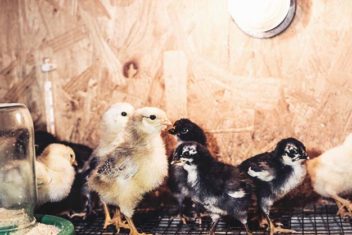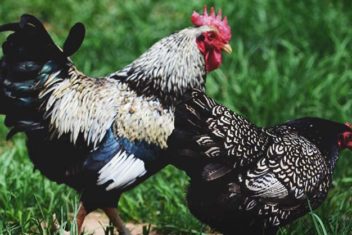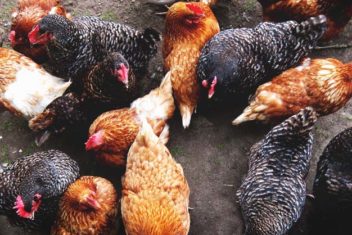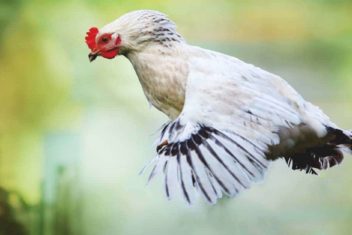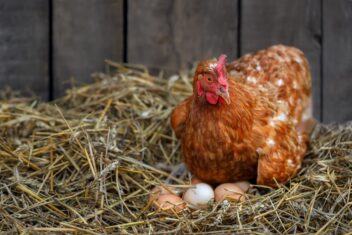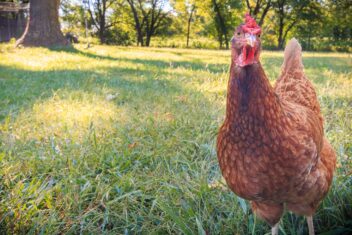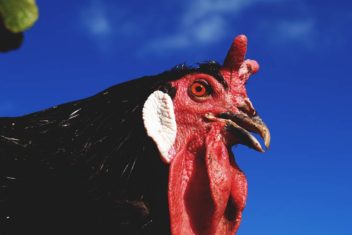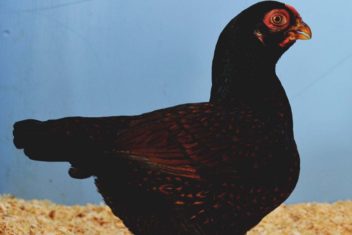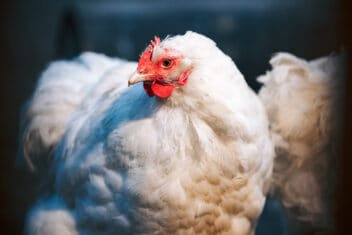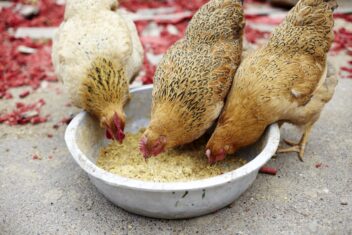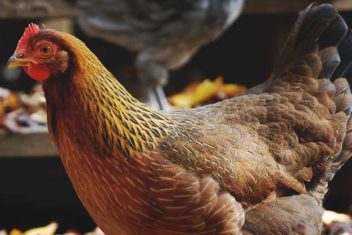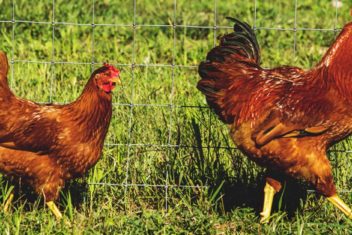Mornings in movies depict the sun rising, a familiar tune playing, and of course, a rooster crowing. To some, it’s a comforting sound. To others, it’s unbearable…especially when roosters don’t just crow in the morning.
Roosters crow all. day. long.
So, how can you stop your rooster from annoying your neighbors (or you, for that matter)?
I’m sorry to say that the only way to stop your rooster crowing completely is to make a meal out of him.
And if that’s not in the cards for him (lucky fella) then rejoice, because there are other ways you can reduce his crowing. Maybe.
These tips are worth a shot if you are at your wits end with your rooster’s raspy song.
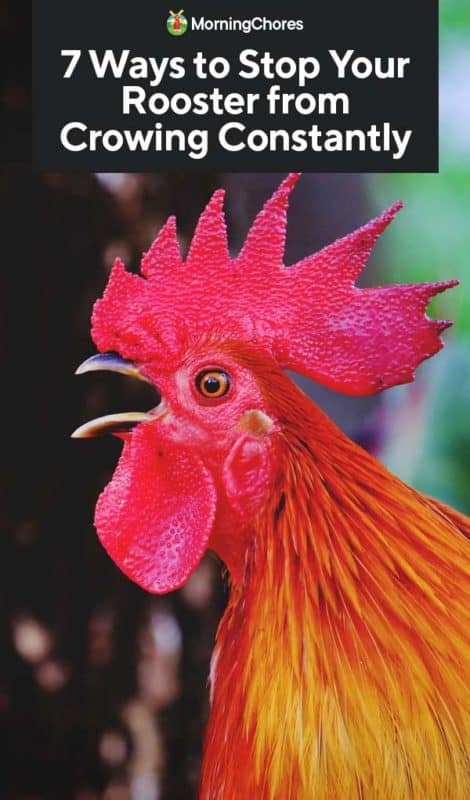
Ways to Stop a Rooster Crowing
1. Surgical Alterations
I’m putting this at the top of the list so we can get it out of the way. Some people, not mentioning names, have taken their rooster’s vocal problem to the extreme by enlisting veterinarians to perform surgery which stop a rooster crowing.
Surgeries are expensive and can only be completed by a veterinarian. It’s on this list merely to raise your awareness of the option. Be aware, this procedure is considered inhumane.
Aside from taking away a rooster’s ability to crow, some have opted to take away his manhood in general. This is called caponizing and it involves surgically removing a rooster’s testicles.
Now, if you know anything about chicken anatomy, you know that a rooster’s testicles are on the inside of his body. So this procedure also requires a veterinarian…if you can find one that will do it.
2. Rooster Collars
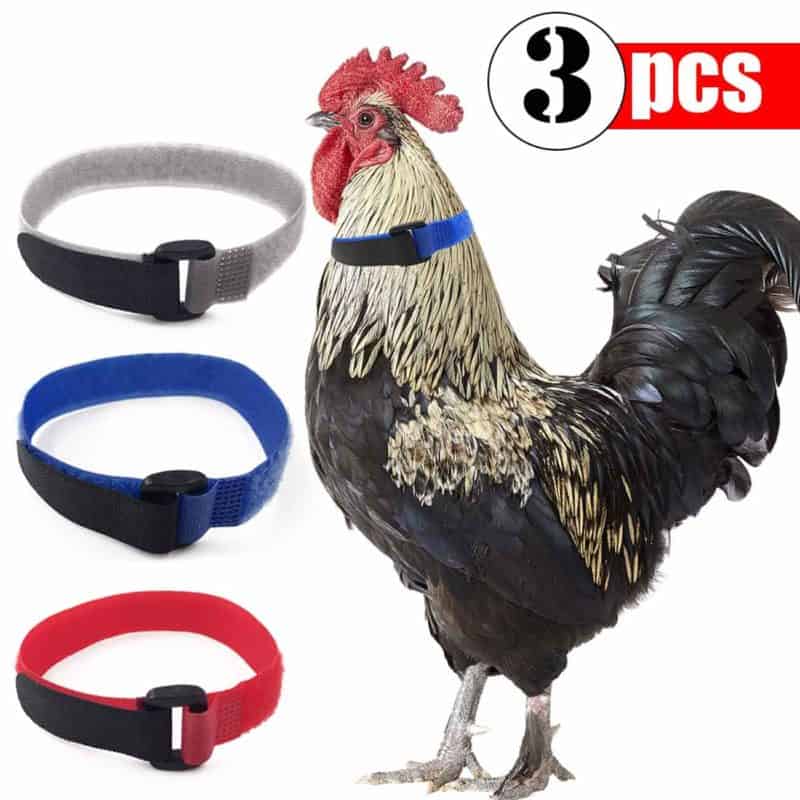
A rooster collar doesn’t necessarily stop your rooster from crowing, but it does make it more difficult for him to do so—at the volume he probably prefers, at least.
A rooster collar is simply a collar that’s designed to restrict the airflow when a rooster attempts to crow. It’s secured tightly around the rooster’s neck. (but not too tight)
Instead of a loud crow, you’ll get a much quieter, squelched crow. This may help ease the frustrations of your neighbors, but those within close proximity may still hear the altered crowing.
You can use a small dog collar or you can purchase collars made specifically for roosters.
3. Meeting His Needs
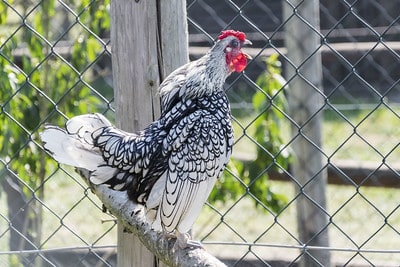
Like most barnyard animals, if roosters are unhappy, they have something to say about it. Crowing is often a rooster’s way of crying out and demanding better treatment (or food and water, for example). If your rooster needs something, he’s probably going to tell you about it.
The next time you notice your rooster being overly vocal, check his food supply, and if it’s low, fill it up to the top. You’ll probably notice a much quieter roo for the rest of the day.
4. Find Out What’s Bugging Him
Speaking of meeting his needs, sometimes roosters crow for reasons other than showing off to the girls. He may see something you’re not seeing…like a predator.
Often, roosters crow to warn his hens of the presence of a predator and to scare the predator away. If there’s an unwanted guest visiting the coop at night, your rooster may be on high alert all day.
Rather than assuming he’s just being a showboater for the girls, consider checking things out to make sure there aren’t any threats to your flock lurking about.
5. Give Him Something Else To Do
If chickens are kept in small spaces, they may become bored. And a bored chicken can be destructive and noisy.
Consider giving your roo some elbow room or something to do if he’s on his own a lot. Chickens are flock animals, and a rooster confined to his own cage is probably extremely bored…and you’re probably going to keep hearing about it until you do something to take his mind off of crowing.
6. Trim the Flock
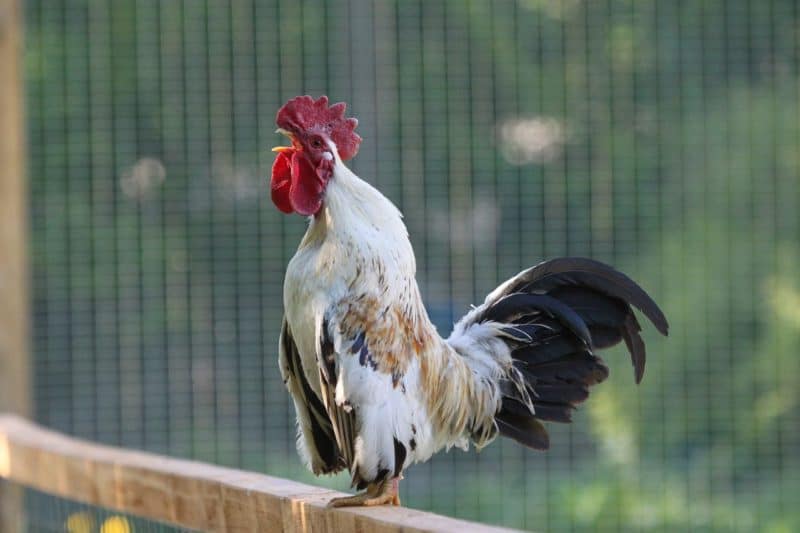
Roosters crow to show other roosters who is in charge. So if you have not one rooster, but two, three, or even four, the competition for hens is pretty fierce. Especially if there is a lack of hens.
Even when the pecking order has been established, roosters will continue to warn and remind their fellow roos of who is in charge, and whose hens are whose.
If you think you may have one too many roosters, consider trimming the flock down to one.
7. Black Out Dates
Roosters are stimulated by light, and when they see any type of light emerging, their natural instincts will prompt them to crow.
If you can limit your chatty roos exposure to light, you can prevent excessive crowing. Keeping your rooster in a coop without windows will allow you to sleep in in the morning, and let him out into the sun when you’re up and about.
This can be especially helpful when you know you need a good night’s sleep on specific nights, or if you work the 3rd shift. You can simply use a small cage and a thick blanket to blackout your rooster in either situation.
Even though it is next to impossible to stop your rooster from crowing, you can take actions to minimize the noise. Plus, now you know that your rooster may be trying to tell you something, paying attention to him could save your flock’s life.

